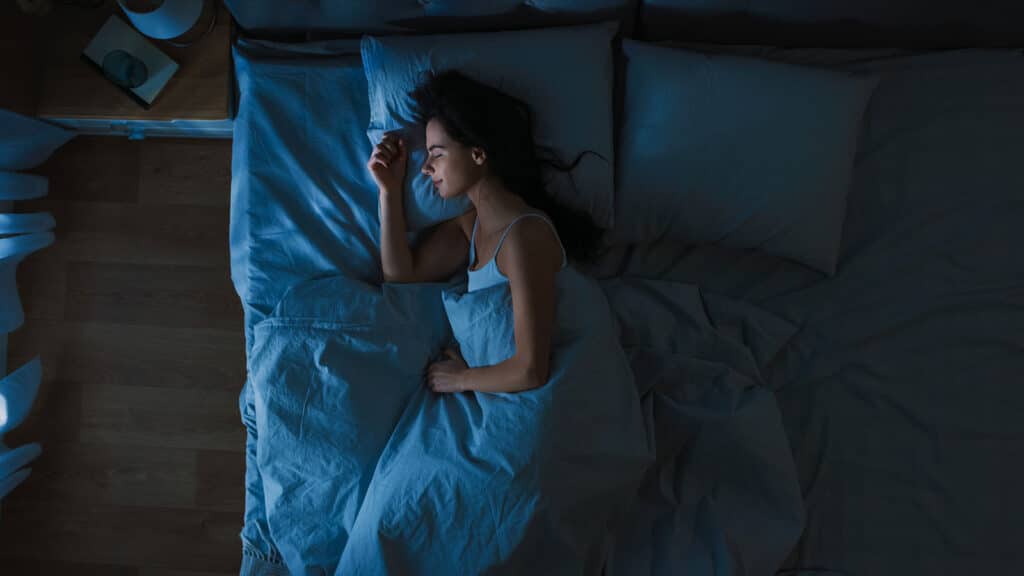Everyone experiences trouble sleeping occasionally, often due to stress, anxiety, or excitement about upcoming events. However, when sleeplessness becomes persistent and starts affecting daily life, people may seek relief through hypnotic drugs, including Z-drugs. These medications can provide short-term solutions for sleep difficulties but carry potential risks.
Table of Contents
Are Z-Drugs Addictive?
Z-drugs, such as zolpidem, zopiclone, and zaleplon, are non-benzodiazepine receptor agonists used for treating insomnia. While these medications target GABA A receptors in the brain to induce sleep, they differ from traditional benzodiazepines in their pharmacokinetics and are often viewed as having fewer adverse effects. However, Z-drug use can still lead to drug abuse, especially with prolonged use.
Z-drugs, like other sedative-hypnotics, are typically recommended for short-term use because of their potential for addiction and tolerance, leading to higher doses for the same sleep effects. Long-term use may result in dependence, marked by withdrawal symptoms such as rebound insomnia, anxiety, and tremors. Withdrawal symptoms can be particularly challenging, making medical supervision crucial when discontinuing these medications.

What Are Z-Drugs Exactly?
Z-drugs are a group of CNS depressants prescribed to treat insomnia by enhancing the activity of gamma-aminobutyric acid (GABA), a neurotransmitter that calms the brain.
Zolpidem (Ambien)
Zolpidem is a widely prescribed Z-drug known for helping patients fall and stay asleep. It has a relatively short half-life, which reduces next-day drowsiness but can still affect sleep behaviors, such as sleep driving or performing activities without memory of them later.
Zopiclone (Imovane, Lunesta)
Zopiclone, also marketed as eszopiclone in the U.S., helps with both sleep initiation and maintenance. It is available in extended-release formulations, making it suitable for individuals who wake up frequently during the night.
Zaleplon (Sonata)
Zaleplon has a shorter elimination half-life than other Z-drugs, making it ideal for those who have trouble falling asleep but do not struggle with staying asleep. It clears from the body quickly, reducing the risk of next-day drowsiness.
Despite these differences, all Z-drugs carry similar risks of side effects such as memory loss, dizziness, and increased risk of falls, especially in older adults.

Potential Side Effects of Z-Drugs
Although Z-drugs are generally considered safer than benzodiazepines, they still pose significant risks. Common adverse effects include:
- Drowsiness or tiredness that persists after waking
- Reduced appetite
- Dizziness or confusion
- Memory loss and cognitive issues
- Incidence of unusual sleep behaviors, including sleepwalking or sleep driving
In rare cases, patients have been known to engage in activities such as driving or preparing food while asleep, leading to dangerous situations. Because of these risks, the Food and Drug Administration (FDA) has issued a boxed warning for all Z-drugs, noting the potential for severe adverse events.
Treatment for Addiction to Z-Drugs
While Z-drugs were initially marketed as safer alternatives to benzodiazepines, their use has raised concerns in clinical practice due to reports of drug abuse, dependence, and withdrawal issues. If you or a loved one has developed a dependence on Z-drugs, it is essential to seek help from clinicians specializing in substance use disorders and mental health interventions. Treatment typically involves a systematic review of the individual’s treatment plan, gradual tapering of the medication, and psychopharmacology support.
Clinical Trials and Research
Recent clinical trials and systematic reviews have explored the pharmacology and long-term effects of Z-drugs. Research has indicated that while low-dose Z-drugs may provide temporary relief for insomnia, their long-term use presents significant risks, especially in older people who may already be at an increased risk of falls due to age-related declines in balance and cognitive function.

Conclusion
While Z-drugs like zolpidem, eszopiclone, and zaleplon offer short-term solutions for improving sleep quality, they are not without risks. Their hypnotic effects can lead to adverse effects such as drowsiness, memory problems, and addiction. To mitigate these risks, Z-drugs should be used under the guidance of a healthcare provider and for short durations. It’s essential to consult your doctor about the risks, benefits, and formulations most suitable for your specific condition, and to stay informed about FDA warnings and emerging research.
FAQ
What is the difference between Benzodiazepines and Z-drugs?
Published on: 2020-10-02
Updated on: 2025-05-27



